John C.P. Goldberg
Interim Dean; Carter Professor of General Jurisprudence
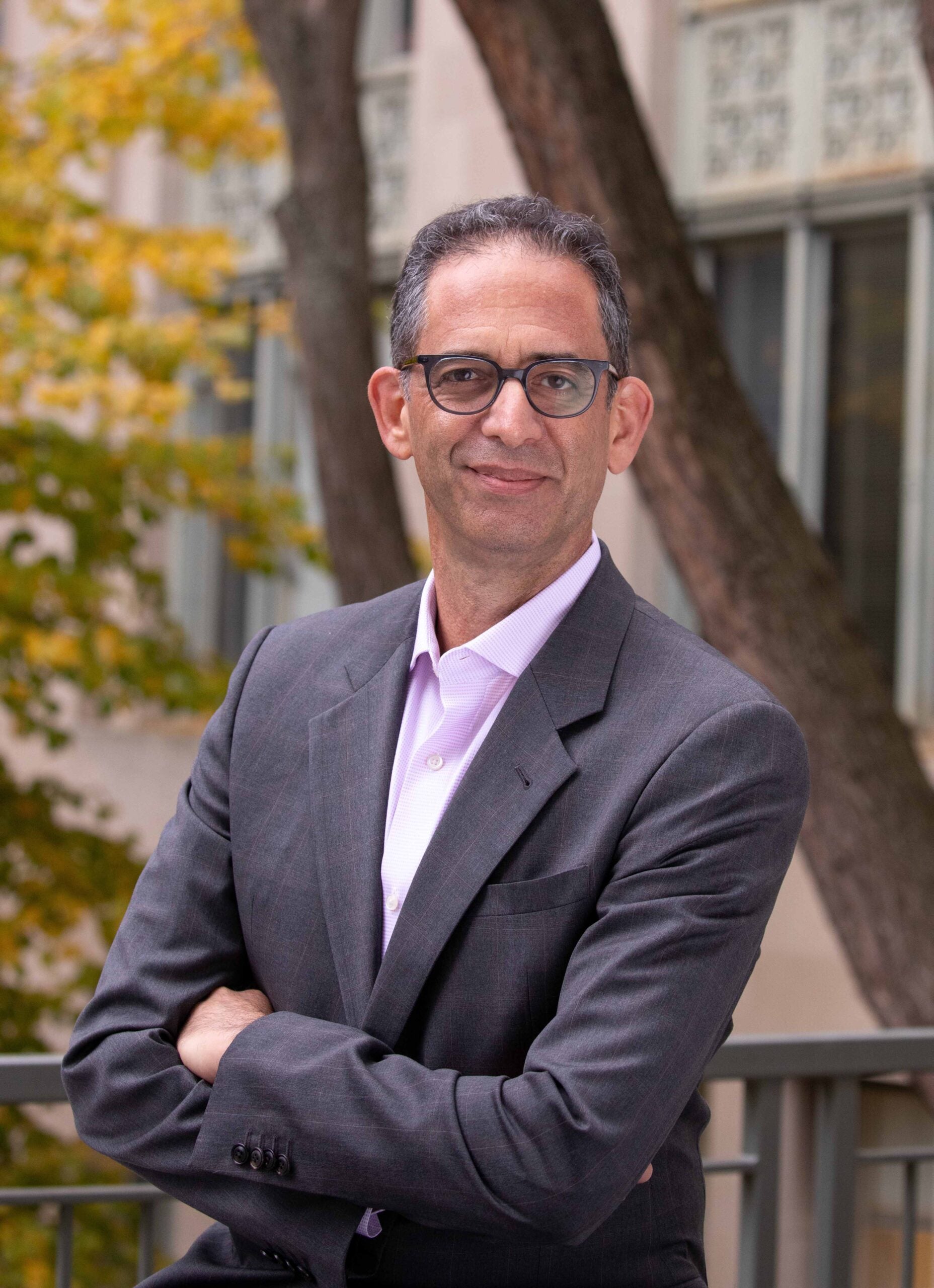
John Goldberg is serving as Harvard Law School’s Interim Dean. Goldberg, an expert in tort law, tort theory, and political philosophy, joined the Law School faculty in 2008 and served as a Deputy Dean from 2017 to 2022. Previously he was a faculty member of Vanderbilt Law School, where he was Associate Dean for Research (2006-08). He is co-author of Recognizing Wrongs (Harvard University Press 2020), as well as a leading casebook — Tort Law: Responsibilities and Redress (5th ed. 2021) and The Oxford Introductions to U.S. Law: Torts (2010).
He has also published dozens of articles and essays in scholarly journals. Goldberg has taught an array of first-year and upper-level courses, and has received multiple teaching prizes. An Associate Reporter for the American Law Institute’s Fourth Restatement of Property, Goldberg also serves as an advisor to the Third Restatement of Torts. In addition, he is a member of the editorial boards of the Journal of Tort Law and Legal Theory, and in 2009 was Chair of the Torts and Compensation Systems Section of the Association of American Law Schools.
After receiving his J.D. in 1991 from New York University School of Law, Goldberg clerked for Judge Jack Weinstein of the Eastern District of New York and for Supreme Court Justice Byron White. He earned his B.A. with high honors from the College of Social Studies, Wesleyan University. He also holds an M. Phil. in Politics from Oxford University and an M.A. in Politics from Princeton University. Before joining the Vanderbilt faculty, he briefly practiced law in Boston.
Lawrence E. Golub
President, Harvard JD-MBA Alumni Association; Chief Executive Officer, Golub Capital
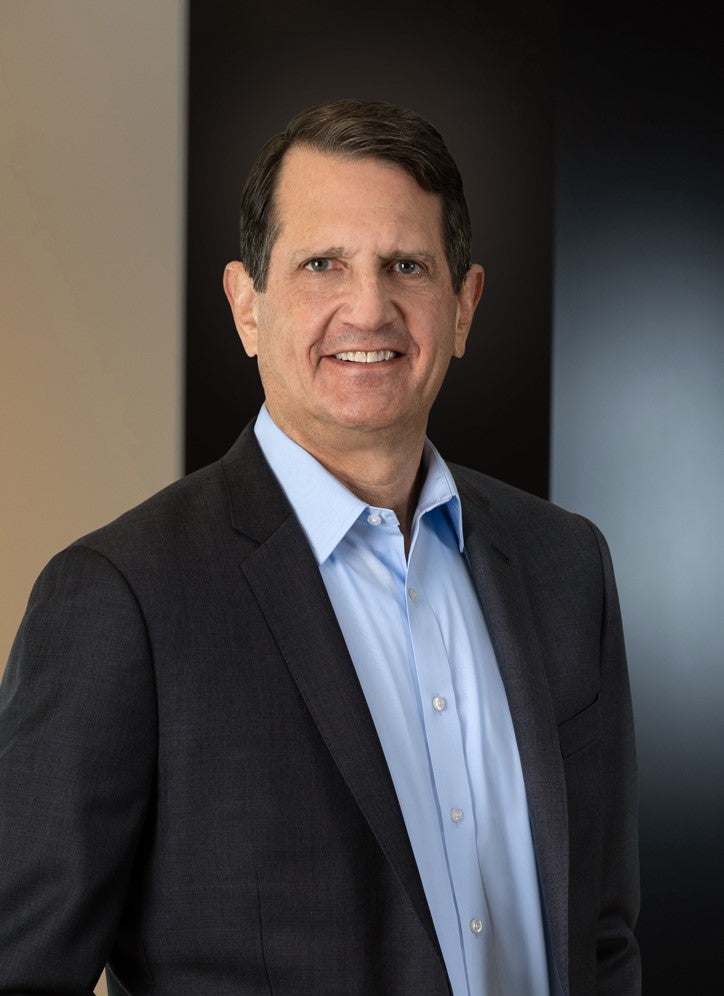
Lawrence Golub is the CEO of Golub Capital, a market-leading, award-winning direct lender and experienced private credit manager. As of January 1, 2025, Golub Capital had over $75 billion of capital under management, a gross measure of invested capital including leverage. Golub Capital partners with institutional investors and family offices offering tailored solutions for investors’ credit asset strategies.
Mr. Golub is active in charitable and civic organizations. He is President of the Harvard University JD-MBA Alumni Association. He is also a member of the Harvard Medical School Board of Fellows, the Columbia Medical School Board of Advisors, the Advisory Council of Harvard Kennedy School’s Mossavar-Rahmani Center for Business & Government, the U.S.-U.A.E. Business Council Board of Directors and the Council on Foreign Relations. Mr. Golub currently serves on the Board of Overseers of the Hoover Institution, the Stanford Interdisciplinary Life Sciences Council and as Co-founder and Chair of the Golub Capital Social Impact Labs and the Golub Capital Nonprofit Board Fellows Program.
In 2024, Mr. Golub was recognized with a Lifetime Achievement Award by The M&A Advisor and inducted into their Hall of Fame. Mr. Golub was a private member of the Financial Control Board of the State of New York for over twelve years. He was a White House Fellow and served for fifteen years as Treasurer of the White House Fellows Foundation. He was Chairman of Mosholu Preservation Corporation, a nonprofit developer and manager of low-income housing in the Bronx. He served for fifteen years as a trustee of Montefiore Einstein, the academic medical center and University Hospital for Albert Einstein College of Medicine.
Previously, Mr. Golub was a Managing Director of Bankers Trust. Prior to that, he was a Managing Director of Wasserstein Perella. Mr. Golub started his career at Allen & Company Incorporated.
Mr. Golub earned his AB degree magna cum laude in economics from Harvard College. He received an MBA from Harvard Business School, where he was selected as a Baker Scholar, and a JD from Harvard Law School, where he served as an editor of the Harvard Law Review.
Guhan Subramanian
Joseph H. Flom Professor of Law and Business; H. Douglas Weaver Professor of Business Law, Harvard Business School; Chair, Program on Negotiation
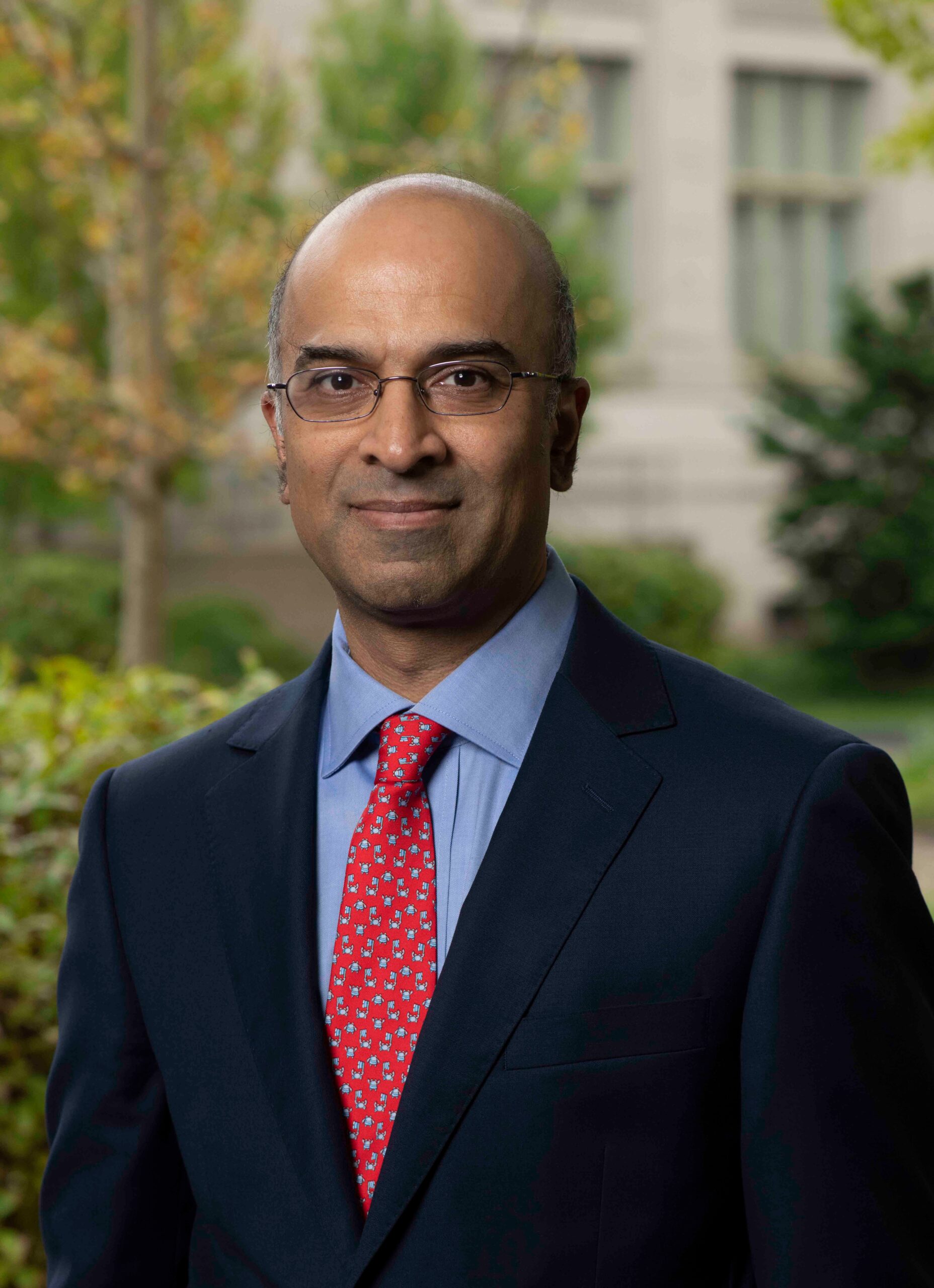
Guhan Subramanian is the Joseph Flom Professor of Law and Business at the Harvard Law School and the Douglas Weaver Professor of Business Law at the Harvard Business School. He is the first person in the history of Harvard University to hold tenured appointments at both HLS and HBS. At HLS he teaches courses in negotiations and corporate law. At HBS he teaches in several executive education programs, such as Strategic Negotiations and Changing the Game. He is the faculty chair for the JD/MBA program at Harvard University, the Harvard Program on Negotiation, the Mergers & Acquisitions executive education course at HBS. Prior to joining the Harvard faculty he spent three years at McKinsey & Company.
Professor Subramanian’s research explores topics in corporate law, corporate governance, and negotiations. He has published articles in the Stanford Law Review, the Yale Law Journal, the Harvard Business Review, and the Harvard Law Review, among other places. Twelve of his articles have been selected as being among the “top ten” articles published in corporate and securities law in their respective years, among the 400+ articles that are published each year, by scholars in the field. The two-volume treatise Law & Economics of Mergers & Acquisitions, which includes 33 “seminal” articles from the field over the past 45 years, contains four of his articles, more than from any other scholar. His book Dealmaking: The New Strategy of Negotiauctions synthesizes the findings from his research and teaching from the past two decades. It has been translated into Chinese (Mandarin), German, Japanese, Portuguese, and Spanish. He is also a co-author of Commentaries and Cases on the Law of Business Organization, a leading textbook in the field of corporate law.
Professor Subramanian has been involved in major public-company deals such as LVMH’s $16 billion acquisition of Tiffany & Co., Exelon’s $8 billion hostile takeover bid for NRG, the $26 billion management buyout of Dell, Inc., and the Murdoch succession battle (as dramatized in the HBO series Succession). He also advises individuals, boards of directors, and management teams on issues of dealmaking and corporate governance. Over his quarter-century on the Harvard faculty, Professor Subramanian has been involved as an advisor or expert witness in deals or situations worth over $200 billion in total value. He is the Chairman of the Board of LKQ Corporation (NASDAQ: LKQ), a Fortune 500 company in the automotive sector.
Professor Subramanian holds degrees in Law, Economics, and Business from Harvard University.
Mark Wu
Henry L. Stimson Professor of LawFaculty Co-Director, Berkman Klein Center for Internet and Society
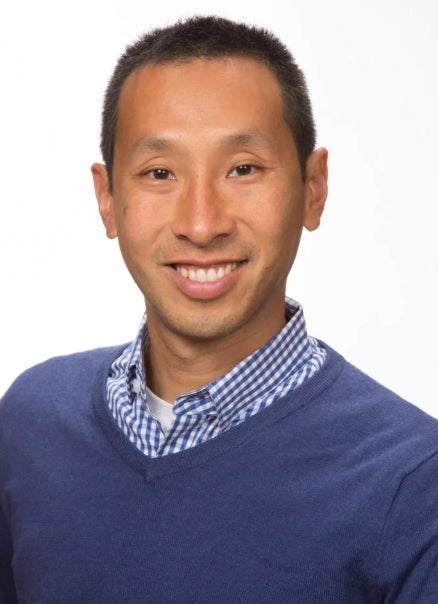
Mark Wu is the Henry L. Stimson Professor at Harvard Law School, where he specializes in international trade and international economic law. His writings cover a broad range of topics, including the impact of emerging economies on global governance, digital technologies, trade remedies, environment, and foreign investment.
In addition, Professor Wu serves as the Faculty Director for the Fairbank Center for Chinese Studies at Harvard University and as a Faculty Co-Director of the Berkman Klein Center for Internet and Society. He is affiliated with several university centers including the Asia Center, Center for the Environment, Center for International Development, East Asian Legal Studies, and the Harvard Environmental Economics Program. He previously served as the Vice Dean for Graduate Program and International Legal Studies at Harvard Law School. He is a past recipient of the Sacks-Freund Award and the HLS Student Government Teaching and Advising Award.
In 2021, Professor Wu served as a Senior Advisor to the United States Trade Representative (USTR) while on leave from Harvard. He also served previously as a member of the agency review team for the Biden-Harris transition team. Earlier in his career, he served as the Director for Intellectual Property at the Office of the USTR, where he was the lead negotiator for the IP chapter of several U.S. free trade agreements.
Professor Wu has presented his research before several international organizations including the G20, OECD, UNCTAD, World Bank, and World Trade Organization (WTO). He is a past member of the World Economic Forum’s Global Futures Council for Trade and Foreign Direct Investment and of the Advisory Board of the WTO Chairs Programme.
Professor Wu began his career as an economist and operations officer at World Bank in China. He later worked as a management consultant at McKinsey & Company. He also served as a law clerk to Judge Pierre Leval of the U.S. Court of Appeals for the Second Circuit. Professor Wu received his J.D. from Yale Law School. He earned a M.Sc. in Development Economics from Oxford University as a Rhodes Scholar. He received his A.B. summa cum laude in Social Studies and East Asian Studies from Harvard University.
Jonathan L. Zittrain
George Bemis Professor of International Law; Vice Dean for Library and Information Resources; Faculty Director, Berkman Klein Center for Internet and Society; Professor of Computer Science, Harvard School of Engineering and Applied Sciences; Professor of Public Policy, Harvard John F. Kennedy School of Government
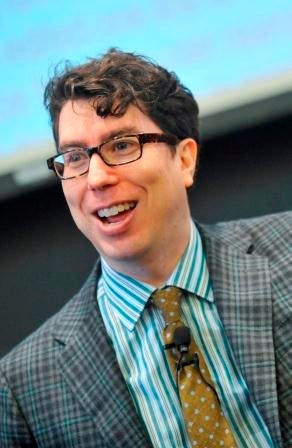
Jonathan Zittrain is the George Bemis Professor of International Law at Harvard Law School. He is also a Professor of Public Policy, Harvard John F. Kennedy School of Government, a professor of computer science at the Harvard School of Engineering and Applied Sciences, director of the Harvard Law School Library, and co-founder and director of Harvard’s Berkman Klein Center for Internet & Society.
His research interests include the ethics and governance of artificial intelligence; battles for control of digital property; the regulation of cryptography; new privacy frameworks for loyalty to users of online services; the roles of intermediaries within Internet architecture; and the useful and unobtrusive deployment of technology in education.
Zittrain established the Assembly Program, a three-track fellowship program that convenes cohorts of experts, professionals, and students to develop solutions to complex technology policy issues, including those in cybersecurity, AI, and online disinformation. He also championed the development of the Caselaw Access Project, which has expanded free public access to U.S. case law.
Zittrain is a member of the American Academy of Arts and Sciences and the Board of Directors of the Electronic Frontier Foundation. He has served on the Board of Advisors for Scientific American, as a Trustee of the Internet Society, and as a Forum Fellow of the World Economic Forum, which named him a Young Global Leader. He was the Distinguished Scholar-in-Residence at the Federal Communications Commission, where he chaired the Open Internet Advisory Committee. His book, The Future of the Internet – And How to Stop It, predicted the end of general purpose client computing and the corresponding rise of new gatekeepers. It is available from Yale University Press and Penguin UK, and under a Creative Commons license. That and other works may be found at jz.org.